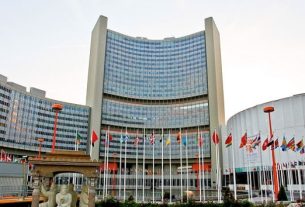A group of German lawmakers has formally introduced a motion to ban the far-right Alternative for Germany (AfD) party, seeking to bring the issue to a vote in parliament before Christmas. The move follows growing concerns about the party’s increasingly extremist stance, with many in Germany now classifying the AfD as “firmly right-wing extremist” or a “suspected extremist case.”
The proposal, which aims to trigger a legal process to have the AfD banned by Germany’s Federal Constitutional Court, has already garnered significant support. By Wednesday, 113 members of parliament (MPs) had signed the petition—well above the required threshold of 37 (5% of parliament). The signatories represent all major political parties in the Bundestag, with the exception of the AfD itself.
The motion was spearheaded by Marco Wanderwitz, a CDU politician from Saxony, who has pushed for swift action in light of the ongoing political turbulence and upcoming federal elections scheduled for February. Wanderwitz emphasized the urgency of the matter, hoping to have the petition debated and voted on by the Bundestag before the year’s end.
However, the proposal faces significant opposition. The leadership of the CDU/CSU, headed by Friedrich Merz, has expressed strong opposition to banning the AfD, arguing that such a move could backfire politically. The SPD’s Rolf Mützenich has indicated that the timing is premature, while the far-left alliance around Sahra Wagenknecht has opposed the ban outright. The Green Party supports gathering more intelligence on the AfD via the country’s domestic intelligence service before taking further steps, and the Free Democratic Party (FDP) has been cautious in its response.
Despite the resistance, proponents of the ban are hopeful the issue will be discussed in the Bundestag before Christmas. The plan is for the petition to be considered by the Federal Constitutional Court in Karlsruhe by February. If the motion is approved by parliament, it would mark a significant step in an ongoing legal and political battle over the future of the AfD, which has been accused of fostering extremism and division in German society.





